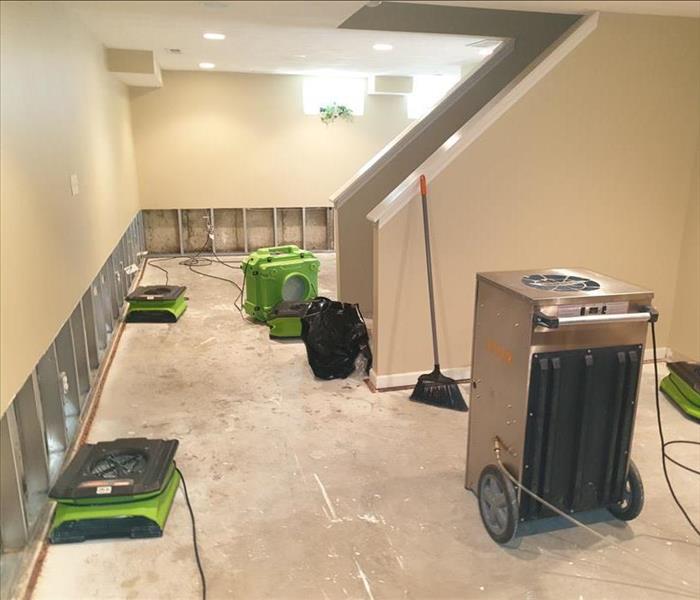How Weather Conditions Can Increase Water Damage Risks
10/8/2023 (Permalink)
 Understanding how weather conditions impact water damage risks in Illinois is essential for property owners.
Understanding how weather conditions impact water damage risks in Illinois is essential for property owners.
When it comes to water damage, understanding the role of weather conditions is crucial for homeowners and businesses alike. The Millstadt, IL, area experiences a wide range of weather patterns, from heavy rainfall to freezing winters, and each can pose unique risks. In this blog, we'll delve into how weather conditions affect water damage risks in Illinois, providing essential insights to help you protect your property.
1. Heavy Rainfall and Flooding
Illinois is no stranger to heavy rains, especially during the spring and summer months. Excessive rainfall can lead to flooding, which is a significant risk for property damage. Floodwaters can infiltrate basements, damage foundations, and ruin belongings. It's essential to have proper drainage systems and flood preparedness in place.
2. Freezing Temperatures and Burst Pipes
Winters in Illinois can be harsh, with freezing temperatures and snowfall. When water freezes, it expands, which can lead to burst pipes. Burst pipes can result in extensive water damage when temperatures rise and the ice thaws. Proper insulation and maintenance of plumbing systems are crucial to prevent this risk.
3. Ice Dams on Roofs
In the winter, ice dams can form on roofs when snow melts and refreezes near the roof's edge. This can lead to water infiltration, damaging ceilings, walls, and insulation. Adequate insulation and ventilation can help prevent ice dams from forming.
4. Thunderstorms and Lightning
Summer thunderstorms in Illinois can bring heavy rains and lightning strikes. Lightning can damage electrical systems and potentially cause fires. Water damage can occur when heavy rains accompany thunderstorms, leading to leaks or flooding.
5. Hail and Roof Damage
Hailstorms can be destructive, causing damage to roofs and siding. Damaged roofing materials can allow water to seep into your home, resulting in water damage. Regular roof inspections and repairs are essential to prevent this risk.
6. Spring Thaws and Rapid Snowmelt
As winter transitions into spring, rapid snowmelt can occur. When large volumes of snow and ice melt quickly, it can overwhelm drainage systems and lead to flooding. Ensuring proper drainage and maintaining gutters and downspouts is crucial during this time.
Understanding how weather conditions impact water damage risks in Illinois is essential for property owners. By being prepared and taking preventative measures, you can minimize the risk of water damage to your home or business. If you ever find yourself facing water damage, remember that SERVPRO of Monroe, Randolph & Washington Counties is here to assist Illinois residents with professional cleanup and restoration services. We're committed to helping you restore your property to its pre-damage condition, no matter the weather conditions.

 24/7 Emergency Service
24/7 Emergency Service